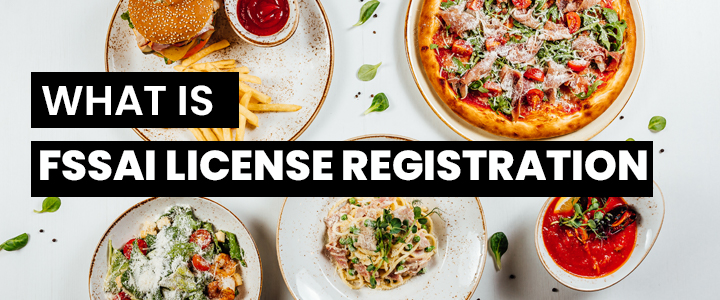Food safety must always come first, and India is no exception. The Food Safety and Standards Authority of India(FSSAI) is the regulatory body in responsibility of ensuring that food products in India are secure and fit for human consumption. It is an independent organization created by the Indian Government’s Ministry of Health & Family Welfare. For the purpose of ensuring that food items are safe and of high quality for consumption, FSSAI's main responsibility is to oversee and regulate the Indian food industry.
You must submit an application for a food license for this, and the FSSAI has two levels of operation for this: state and central, referred to as fssai state or fssai central license registration.
Although both levels have distinct tasks and responsibilities, they cooperate to guarantee the efficacy and integrity of India's food supply. So, this article will discuss which license you need for your food business based on whether a state or central fssai registration license one is necessary.
Read Also This -: Procedures and required paperwork for Fssai license renewal in Delhi
Differences between an FSSAI State License and an FSSAI Central License
The safety and caliber of food items in India are ensured by the joint efforts of the state and central fssai licensing registrations, which are two separate organizations. The following are the differences between an FSSAI State and an FSSAI Central Registration License:
Owners of food businesses: Owners of food businesses that operate within a single state are granted a state fssai license registration. Owners of food businesses that desire to run on a consolidated basis across various states are simultaneously granted the FSSAI Central License. According to a food business owner that operates in multiple states, you can obtain an FSSAI Central License by registering for the organization online.
Eligibility: The qualifications needed to obtain a State FSSAI License Registration are less stringent than those needed to obtain an FSSAI Central License. A company must be physically based in the state for which the license is being sought, have an active GST registration, and be eligible to apply for a food license. A strong management structure must be in place for the business to be granted an FSSAI Central License.
Application Process: The Central FSSAI license registration application process is more involved and time-consuming than the FSSAI State License application process. This is because the approval process for the FSSAI Central License is more severe and detailed, and it requires more thorough and extensive documentation than the FSSAI State License. Hence, the best consultant for fssai registration, fssaifoodlicense, can help you receive your license straight away.
Fees: The FSSAI Central licensing fees are higher than those for the FSSAI State License. This is so that the FSSAI Central license may be issued and regulated more efficiently than the FSSAI State License. Hence, as soon as you can, obtain your fssai registration license.
Inspection Protocol: Individuals who hold an FSSAI Central License must submit to more frequent and rigorous inspections than those who hold a State FSSAI License Registration, which is subject to routine inspections by the State Licensing Authority. This is because holders of the FSSAI Central License have a centralized management system that allows them to operate throughout multiple states, necessitating more inspection and monitoring than the FSSAI State License. \
Penalties: For non-compliance, FSSAI Central License holders typically face harsher penalties than FSSAI State License holders. This is due to the fact that those who have FSSAI Central Licenses do so while using a centralized management system that necessitates greater monitoring than obtaining a state FSSAI registration license.
Types of food business: The fssai registration license is necessary for the following types of food business operations. For large-scale businesses, food importers and exporters, food packaging and labelling businesses, food testing labs, and food catering services, a central license is necessary. Small and cottage level food producers, retail food outlets, food transport vehicles, food vending cart operators, and food service providers must all register for a State fssai license registration.
Conclusion
Together, FSSAI Central and FSSAI State collaborate to guarantee the safety and calibre of food items in India. Their cooperation and coordination are crucial for attaining the shared objective of ensuring that food items in India are safe and of high quality for consumption by getting a fssai registration license, despite the fact that they each have specific duties and responsibilities.
It is crucial to remember that FSSAI Central, which is in charge of providing import and export licenses and ensuring that imported food items conform with Indian food safety rules, plays a vital role in monitoring and regulating the food import and export industry. This is crucial for preserving the quality and safety of food goods imported into India and making sure they adhere to the same requirements as food products produced domestically.
We therefore hope you enjoy reading our blog and learn some useful information. If you wish to apply for a food license, see our legal advisor, who will grant you an FSSAI license in the simplest and quickest way.




Comments
Post a Comment